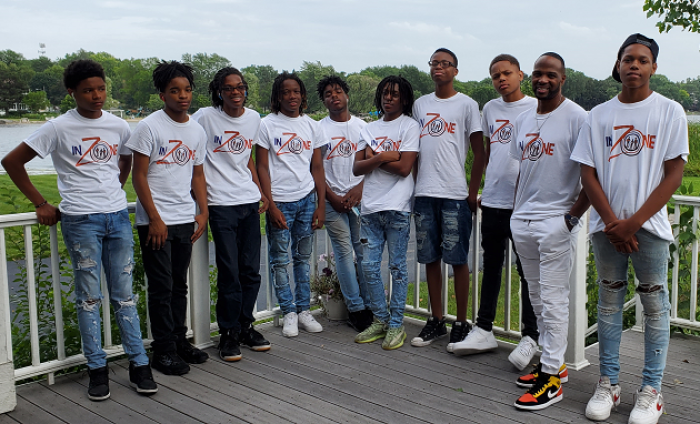Youth pastor becomes guardian of underserved Chicago teens, moves them to suburbs

A youth pastor from Chicago has taken dual-guardianship of several young men from some of the city’s most underserved neighborhoods and has allowed them to live in the suburbs where they are offered improved education, discipleship and resources.
Pastor Terrance Wallace, founder of the InZone Project, helps oversee seven young men living in a suburban home in Wauconda, Illinois, and has brought them into his family in a literal sense. He plans to move over 20 others from the city into a suburban mansion in the affluent Barrington Hills this fall.
Wallace's structure of removing youth living in underserved areas to another area with more opportunities first came to be in 2011 when he initially launched the InZone Project in New Zealand.
“My kids in New Zealand had to come home and write essays on Chicago violence and gangs,” Wallace, a Chicago native, told The Christian Post. “Those essays were largely about black people, men in particular in Chicago. When I came back [to Chicago], I couldn’t look at what was happening and not do anything.”
Wallace and the family of Angie Mooney, a state education worker, have lived with seven young black men from underserved Chicago communities in Wauconda for over a year. Schools, homes and opportunities are much better in Wauconda compared to the city, Mooney told CP.
The InZone Project typically begins with a young person reaching out to the program who is interested in joining Wallace's family. Parents and legal guardians are constantly involved, according to Wallace.
New applicants can apply online for the program and after an interview with the youth and their parents, Wallace begins the process of bringing them into the family. The family currently resides in a large suburban home, located on a street of 100% white residents.
"Because of stereotypes and negative connotations around black and brown kids there's resistance from municipalities, but not so much in the community," Wallace said. "But once people get around the kids and get to know them, the stereotypes always fade away."
Youth who take part in the program are offered daily devotions and attend local schools. In Wauconda and the soon-to-come location in Barrington Hills, the local schools offer opportunities that are not present in their original neighborhood.
While primarily funded by Wallace, who owns a technology company, donations are important for InZone to operate. Wallace said the project does not allow donors to influence the project, especially if they are displeased with the religious aspect.
“We go into communities from the inside to connect with resources outside the community,” he explained. “It all started because God spoke to me to go do this. I’ve had to turn down funding because people wanted to not have the spiritual aspect, but I can’t do InZone without introducing the Christ element.”
Participants are encouraged to adopt the desire to help other young people. Wallace said he has a feeling of accomplishment when the youth complete school and find a sustainable job.
“It’s important to know the boys are part of the family forever,” he said. “A success for me is when they bring an impact back to their communities and have a wide perspective, not just their own.”
Mooney said that bringing her family together with Wallace and the young men has given an opportunity not just for the young men, but for her biological family as well.
Her children have had the opportunity to live a diverse lifestyle with all kinds of people to interact with.
There has been some backlash toward the program, something Mooney attributes to innocent ignorance.
“When I brought in the seven black boys onto a 100% white street, all the neighbors were supportive and the response was beautiful,” Mooney told The Christian Post. “But then there was one, and it was because of ignorance.”
Some people tend to live in fear and lack experiences around black men, she said. Since she works in the Chicago education system, she said she does not live this way.
She also said that the majority of suburban citizens welcomed the program and the unique family.
Plans to bring as many as 25 more boys into the mansion in Barrington Hills, a predominantly white community, this fall has also faced opposition from some community members who argued at a community board meeting this week that “there won’t be oversight” or “protection.”
“What we’re seeing is a small few who lack the knowledge and experience of having black people in their lives,” Mooney argued. “The education these youth are gaining has created remarkable results in New Zealand and Wauconda. This is what God wanted in Wauconda and will move to Barrington Hills.”
In a Zoom video conference of 193 community members, 191 responded positively and welcomed InZone’s presence in Barrington Hills, Mooney said.
Wallace and Mooney discussed their plans to bring the InZone Project to the suburb at the board meeting Tuesday.
“With what we face as a nation, I think the only way to make America great is to confront our divisions and have conversations with each other,” he said. “We face challenges but I’m strengthened by the Lord to continue to charge forward.”




























